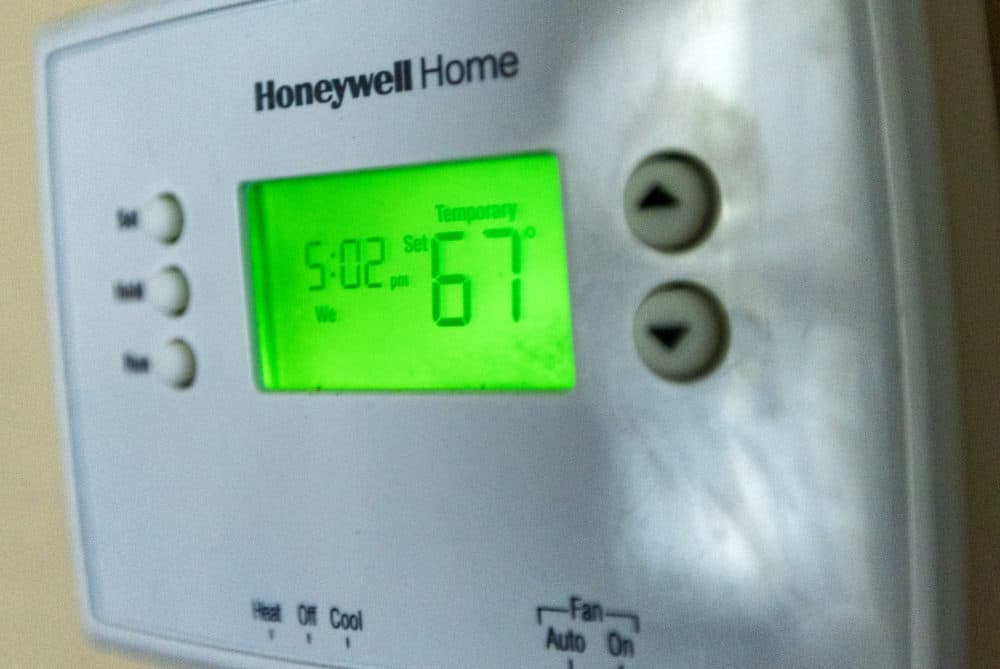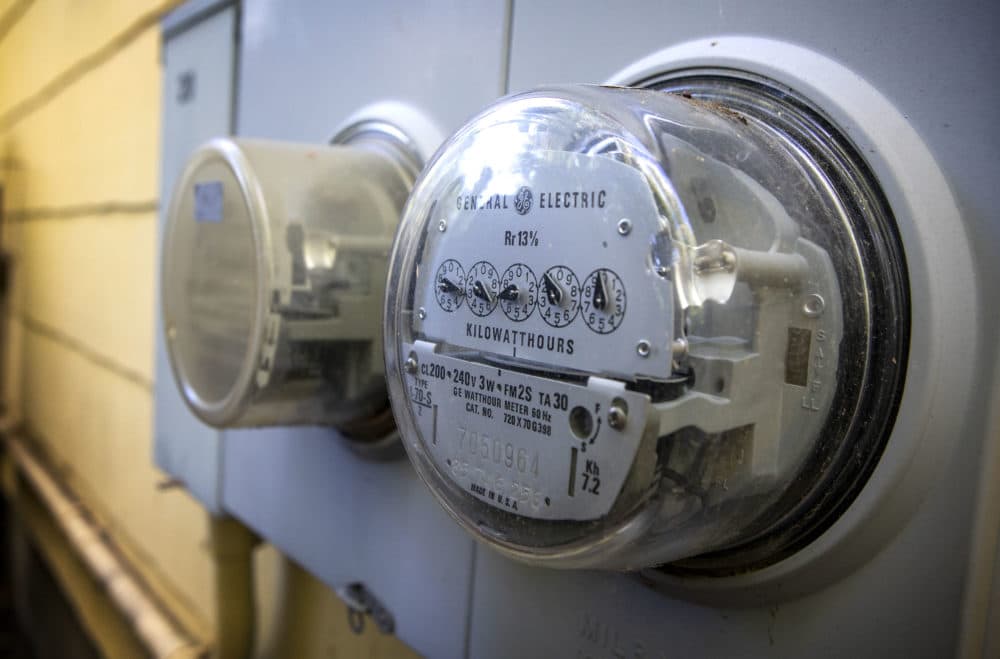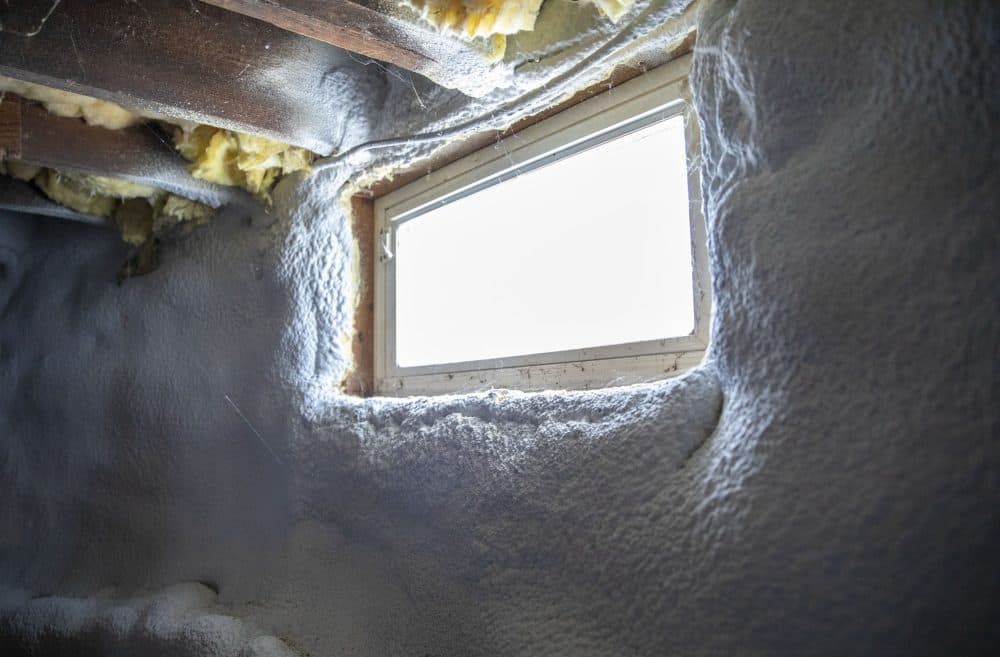

It's that time of the year again. The days are getting shorter, the temperature is dropping and you're probably turning up the thermostat.
Unfortunately, Massachusetts has some of the most expensive electricity and gas prices in the country, which when combined with our old, drafty housing stock, can leave you paying hundreds of dollars of month to stay warm.

But fortunately, the state also has some of the most generous home heating assistance programs out there.
So if you're worried about paying your utility or fuel oil bills this winter, here’s what you need to know:
Most fuel assistance in Massachusetts comes from the Low Income Home Energy Assistance Program, better known as LIHEAP (pronounced lie-heep). The name of the program is a bit of a misnomer, though, since you don’t actually have to be “low income” to get help.
LIHEAP money comes primarily from the federal government and is distributed through designated community action groups and local nonprofits.
To qualify for LIHEAP, you need to make no more than 60% the state's median income level, which in dollar terms, is $87,294 for a family of four and $45,392 for an individual.
The amount of assistance you get depends on your household size and income, fuel source, "housing status" (whether you live in subsidized housing), as well as how much money the program has in any given year.
"But in no category is it trivial money. So it's worth everybody looking at," said Charlie Harak, a Massachusetts-based attorney at the National Consumer Law Center.
This winter, the state estimates that LIHEAP benefits will be between $600 and $1,500.
Aside from LIHEAP, utilities like National Grid and Eversource offer discounted gas and electricity rates and have several payment programs for people struggling with their bills. (More on these programs below.) Some fuel oil companies will also allow you to spread the cost of filling your tank over a 12-month period instead of paying your bill in lump sum, which can help make payments feel more manageable.
A third and important option for assistance is the Massachusetts Good Neighbor Energy Fund. Administered by the Salvation Army, this program offers financial help to people who are temporarily struggling to pay their utility bills but don't qualify for LIHEAP.
You can apply with the local community action agency or nonprofit that serves your area in-person, online, or over the phone. If this is your first time applying, you’ll need a few documents:
It can take several weeks for your application to process and for the money to appear in your account, said Elizabeth Berube, who leads Citizens For Citizens, Inc., a community group in Taunton. Berube urged people to apply as early as possible to avoid significant delays during the peak winter season.
“We don't want anyone to do anything dangerous to stay warm, like using the oven,” she said.
If you're in a crisis and can't wait that long, you should contact your local agency. These groups can often authorize emergency services or an oil delivery within a couple of days for people in a desperate situation.
As soon as you’re approved to receive LIHEAP assistance, your gas or electricity provider will be informed and the assistance money will be credited to your utility account. The utility will apply the credit to your monthly heating bills from Nov. 1 to April 30, or until it runs out.
To give an example of how this works, if your household qualifies for $1,000 in assistance and your monthly gas bill is around $250, the assistance would cover four months of bills.
It’s worth noting that if you qualify for heating assistance — or if you or someone in your household receive benefits like the Supplemental Nutrition Assistance Program (SNAP), Temporary Assistance for Needy Families (TANIF) or Supplemental Security Income (SSI) — you probably also qualify for discounted gas and electricity bills from your utility.
Eligible National Grid customers can get a 32% discount on the total cost of heir electric bill and a 25% discount on the total cost of their gas bill. For Eversource customers, the discount rates are 42% and 25%, respectively.
The discount rates are available year-round and can be combined with LIHEAP benefits. For example, let's say you heat with natural gas and have a monthly bill of about $200. The discount rate will lower your bill to $150, which you can use your LIHEAP benefit to help pay for.
If you heat your home with oil, things work a little differently. If you qualify for LIHEAP, your fuel will be delivered by specific companies that have signed state contracts to provide discounted oil. The cost of filling your tank will be deducted from your LIHEAP benefit.
The short answer is “no.”
Massachusetts law says that between Nov. 15 and March 15, a utility cannot shut off the gas or electricity used to heat your home if you’re experiencing “financial hardship” and can’t pay your bill. If you are having financial troubles, contact your utility. They may ask you to fill out a form, like this one from National Grid.
The wintertime ban on heat shut-offs also applies to households where someone is severely ill, elderly, or under 12 months old. It does not, however, apply to small businesses or other commercial customers.
In some very rare circumstances a utility company will shut off a non-LIHEAP customer’s gas or electricity during the winter. If that happens, it's only after multiple attempts to reach the person and let them know about payment plans or other assistance options, said John Lamontagne of National Grid.
“Unfortunately, in some limited cases, customers have chosen not to respond to our outreach, make any payment or set up a payment plan,” he said. “In these cases, we had to take the next step, which is to disconnect their service.”

Yes. The first thing you should know is that if you qualify for fuel assistance and are behind on payments, your utility company may retroactively apply the discounted gas or electric rate, which could make a big dent in what you owe.
It’s also important to note that under Massachusetts law, you will not accrue interest on any unpaid utility bills.
That said, if you're behind on bills and don't qualify for fuel assistance, your utility will most likely still help you figure out a payment program. Broadly speaking, utilities offer three forms of assistance:
"Yes" in the sense that everyone who qualifies for LIHEAP assistance will get some money, but "no" in the sense that the benefits are unlikely to cover the total cost of heating bills for everyone who needs help. That's because the amount you receive depends in part on how big the initial pot of money is.
During the winter of 2022-2023, the federal government gave Massachusetts $213 million for LIHEAP. The state legislature kicked in another $57 million, though it decided to hold the money for the following winter because it anticipated lower funding levels from Congress.
So far this winter, on top of the $57 million carried over from the state, the federal government has allocated $144 million to Massachusetts. President Biden has requested more assistance from Congress, which the Executive Office of Housing and Livable Communities estimates could net Massachusetts another $50 million for LIHEAP.

One of the best ways to lower your heating bill is to “weatherize” your home to make it more energy efficient.
The state has an energy efficiency program, Mass Save, that will send someone to your home — whether you own or rent — to do a free energy audit. Mass Save will also help you pay for things like home insulation, energy efficient windows and new heating or electrical appliances.
Aside from Mass Save, experts say that simple things like sealing your windows with clear plastic wrap, using a smart thermostat or turning down the heat at night can make a noticeable difference in how much energy you use.
There’s financial help available if you’re struggling with energy costs.
Too many people automatically assume they don't qualify for LIHEAP assistance, said Berube of Citizens For Citizens, Inc., when in fact, they do.
“Please apply,” she urged, adding that "people should not fear that there's not enough money to go around.”
And remember, if you’re worried about paying your bill or are already behind on payments, you should communicate with your utility or oil vendor about assistance.
“They're not eager to shut people off,” said Harak of the National Consumer Law Center. “They have an interest in connecting their customers with resources because that also helps their bottom line.”
This article was originally published on November 03, 2022.

Miriam Wasser Senior Reporter, Climate and Environment
Miriam Wasser is a reporter with WBUR's climate and environment team.

Yasmin Amer Executive Producer, Radio Boston
Yasmin Amer is Executive Producer of WBUR's Radio Boston.